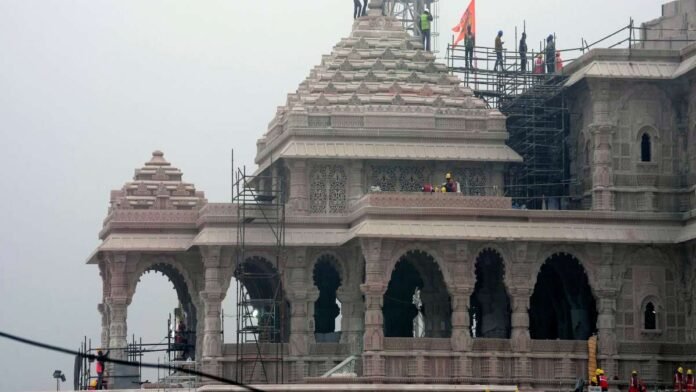In a noteworthy move, the Tripura government has declared a dry day in the state on Monday in honor of the consecration ceremony of Ram in Ayodhya. This decision, as per an official order, reflects the significance accorded to the religious event by the local authorities.
Interestingly, despite the solemnity of the occasion, Chief Minister (CM) and his cabinet colleagues, along with the top brass of the state’s Bharatiya Janata Party (BJP), have opted not to attend the event on Monday. The organizers have reportedly urged them to skip the ceremony due to the anticipated heavy rush.
While the decision to declare a dry day aligns with the cultural and religious sentiments associated with the consecration of Ram in Ayodhya, the absence of prominent political figures during the event raises intriguing questions. The CM, cabinet members, and BJP leaders are slated to embark on their journey to Ayodhya on February 4, with plans to offer prayers the following day.
This move not only underscores the delicate balance between religious observance and political commitments but also suggests a conscientious effort to manage the logistical challenges posed by the expected surge of attendees in Ayodhya on Monday.
The concept of a dry day, wherein the sale and consumption of alcohol are prohibited, is a common practice during religious or significant cultural events in various parts of the country. It reflects a gesture of respect towards the sanctity of the occasion and serves as a means to maintain decorum and reverence.
The decision of the political leadership to abstain from attending the event on the consecration day might be driven by concerns over the logistics and potential disruptions caused by the massive gathering. This strategic decision not only safeguards the safety of political figures but also aligns with the organizers’ request to mitigate the impact of the anticipated crowd.
As Tripura prepares for the pilgrimage to Ayodhya on February 4, the state remains poised at the intersection of religious fervor and pragmatic governance. The delicate balance between honoring cultural traditions and managing the practicalities of a major religious event showcases the nuanced approach adopted by the state government in navigating this significant juncture.
The declaration of a dry day in Tripura on the occasion of Ram’s consecration ceremony, coupled with the decision of key political figures to defer their attendance, reflects the complex interplay between religious observance and political pragmatism. As Tripura’s leaders prepare for their pilgrimage to Ayodhya, the state is emblematic of the careful navigation required in reconciling cultural traditions with the demands of governance.


